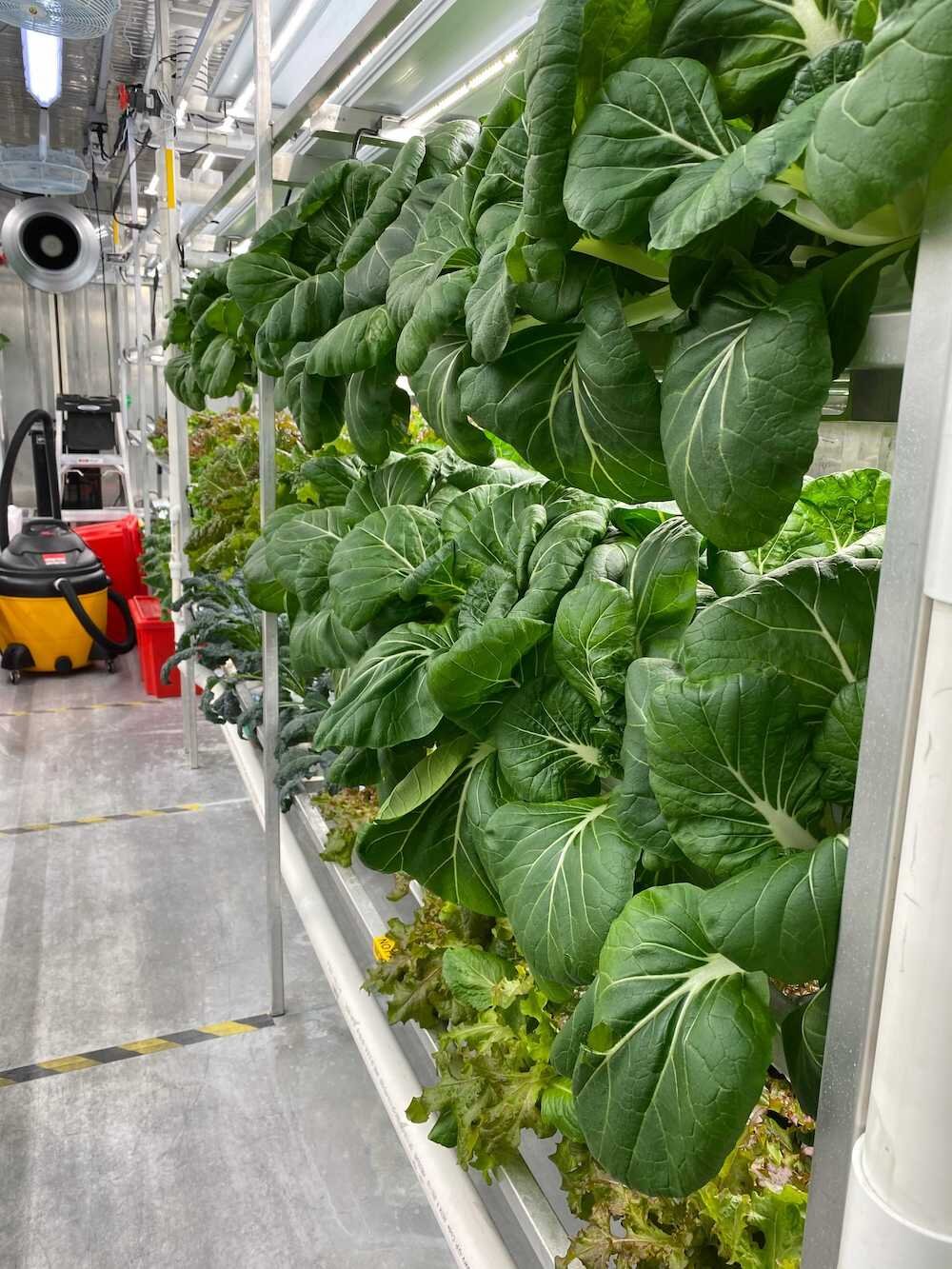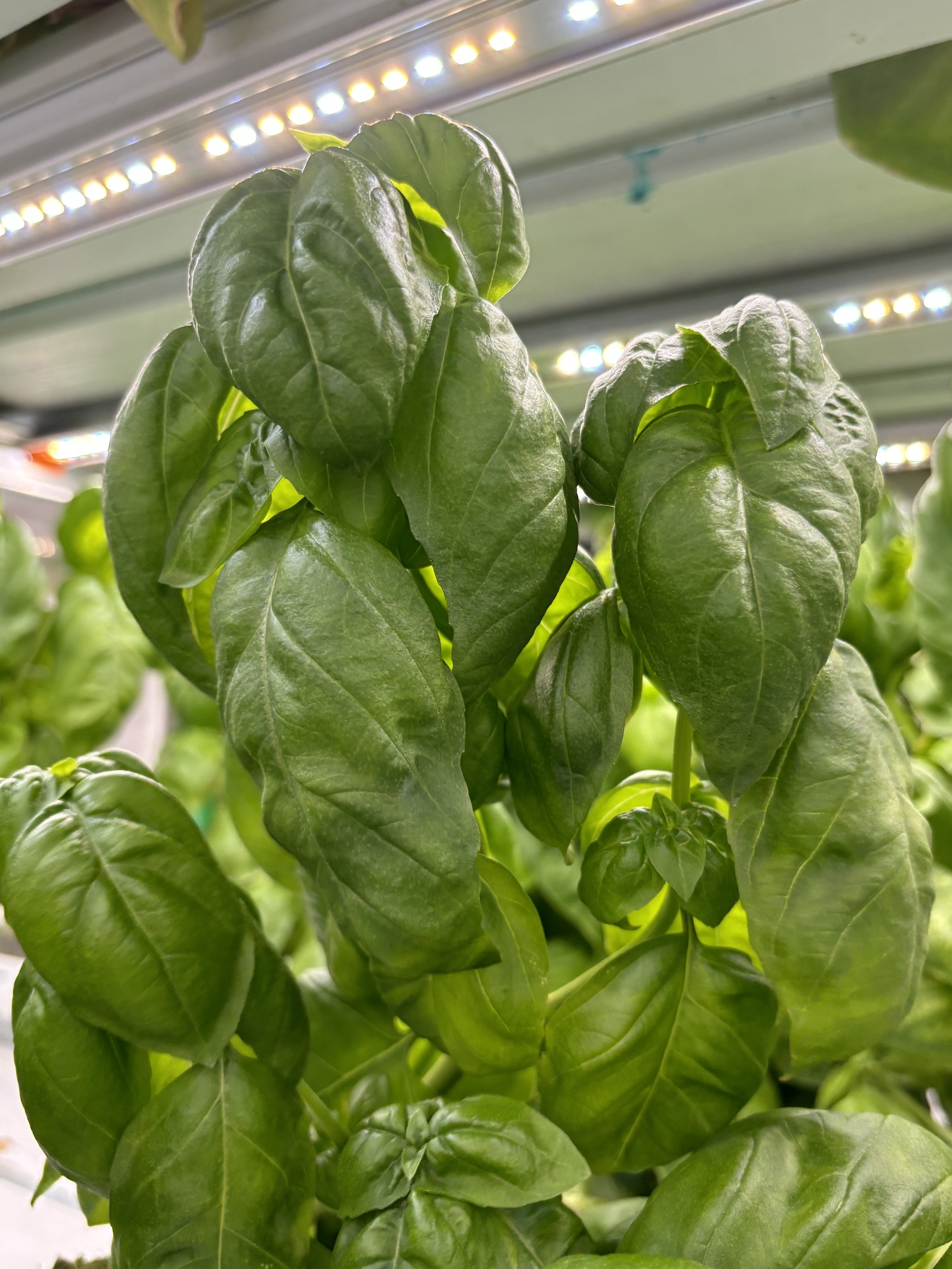Improving food sovereignty on Manitoulin Island: Sheshegwaning First Nation
Freshly grown produce is sold directly to the community under the brand Odawa Freshwater Gardens.
Project at a Glance
Launched June 2020 in Sheshegwaning First Nation on Manitoulin Island.
Project goal: Increase self-sufficiency and food security within the Nation and economic development opportunities available on Manitoulin Island.
Distribution model: Freshly grown produce is sold directly to community members and to a local snack bar under the brand Odawa Freshwater Gardens.
Impact: Community members gain access to fresh produce in any season, without the added burden of travelling a great distance to neighbouring markets. Profits are retained as band revenue, ensuring these funds are used to benefit the community. Additionally, the project is expanding with a second farm.
Operator: One lead operator and an office manager split the duties of managing and operating the farm.
Limited Access to Fresh Produce
Sheshegwaning First Nation, located on Manitoulin Island in Ontario, faced challenges in accessing fresh, nutritious produce year-round. The remote location, coupled with harsh winters, severely limits the availability of affordable, locally grown food.
“We live 40 minutes away from the closest grocery store, so for us, we're like the last stop,” explains April Folz, economic development director of Sheshegwaning First Nation. “We get the last selection of greens. We get the last of everything.”
The pandemic only made matters worse. “With COVID-19, there have been times we haven’t been able to get fresh produce as readily as we want from neighbouring grocery stores,” shared Sheshegwaning Chief Dean Roy with The Manitoulin Expositor.
With limited access to fresh fruits and vegetables for a good chunk of the year, the Nation needed a cost-effective solution that could provide fresh produce, enable greater self-sufficiency, reduce dependency on external suppliers, and create local economic opportunities.
“We live 40 minutes away from the closest grocery store, so for us, we’re like the last stop. We get the last of everything.”
Hydroponic Farming for Year-Round Growing

To tackle these issues, Sheshegwaning First Nation partnered with Growcer, a company dedicated to empowering communities to grow fresh, hyper-local produce year-round using hydroponic modular farms.
The idea first caught Folz’s attention at a conference in Quebec, where she noticed that Growcer’s greens were thriving in their hydroponic environment despite the snowy outdoor conditions. “And then COVID happened,” recalls Folz. “There were no vegetables at the grocery store. And stuff that was there was brown.”
This situation and the historical lack of fresh produce in the area were the motivation needed to take the next steps toward establishing a modular farm. With the Sheshegwaning Chief’s support, the idea began to take root as Folz and her team worked out the logistics.
From conducting community surveys and deciding what to grow to securing financing and hiring staff for the container farm, there were many issues to address. However, with Growcer’s support, the process was relatively easy, Folz adds — due, in part, to the fact that the community was excited at the prospect of having a consistent supply of fresh local greens within the Nation. In the summertime, the Nation has an outdoor farm and farmers’ market, but their Growcer farm operates year-round.
“The possibility of being able to access fresh greens every week — they were really excited about that,” she says. Additionally, the community was hopeful that the farm could provide greater food security, guaranteeing that people could access food when they need it.
“The possibility of being able to access fresh greens every week — they were really excited about that.”
Results: Fresh Greens in Any Season
The farm has a custom decal sporting their Odawa Freshwater Gardens logo, which has invited community members to walk up to the farm to pick up their produce directly.
Ultimately, Growcer's modular farm technology, now in use by more than 62 growers across Canada, proved to be the ideal solution for Sheshegwaning's needs.
Today, the farm grows a variety of fresh produce, including Monte Carlo and wildfire lettuce, spinach, kale, parsley, and basil. Nathan Bush, the farm’s operator, shares that the farm has even branched out to become a supplier for a local snack bar.
“People are pretty enthusiastic about it. They’re also very interested in the process – like how long can you grow year-round, what kind of stuff can you grow,” Bush says. Bush also leads classroom tours, where grade twos and eights visit the farm and learn what it’s like to be a farm operator.
“We do small activities, like let them get suited up in the PPE and transplant,” Bush adds.
Nowadays, the Nation has reliable access to a wide range of fresh vegetables every week, allowing community members to put healthy meals on the table year-round, even in extreme weather conditions. The farm keeps the community in the loop by posting on social media, and many community members will even walk up and knock on the door to purchase produce.
“People are pretty enthusiastic about it. They’re also very interested in the process – like how long can you grow year-round, what kind of stuff can you grow.”


Fresh chois growing in Sheshegwaning First Nation’s farm.
Herbs, like basil, grow year-round in the modular vertical farm.
Impact: a More Secure, Sustainable Future
Year-round fresh produce: Sheshegwaning now grows a variety of nutritious vegetables year-round, improving access to fresh, healthy food. The community has also added another hydroponic farm through the local health centre to grow tomatoes, green beans, cucumbers, and other produce they don’t grow at the primary location.
Economic benefits: The project has created local jobs and youth job placement and shadowing opportunities, contributing to economic self-sufficiency. Whether at the farmer’s market, on-site, or via local produce deliveries, the farm has multiple revenue streams to help support long-term growth.
Community health: Increased availability of fresh produce can mean better food choices and may improve health outcomes among community members.
Expansion plans: As the farm’s operators get more comfortable with growing, the goal is to provide fresh greens to other parts of Manitoulin Island.
By transforming their approach to food production, Sheshegwaning First Nation has set a powerful example of how innovative solutions like Growcer's hydroponic farms can address food insecurity and foster economic growth in remote communities. The project’s success story underscores the importance of local solutions for global challenges.
Learn more
To learn more about Growcer’s hydroponic farms, you can get started by taking a virtual tour, exploring our farm solutions, or reaching out to start brainstorming your idea with us. From initial project planning and financing to installation, training, and ongoing support, we’re here to help make your ideas a reality.
If you have an idea or questions about your situation, book a meeting with the team. This short introduction call is a chance to get to know more about your ideas and recommend next steps and supports tailored for your situation.


